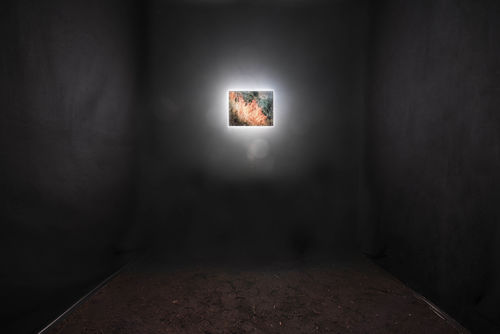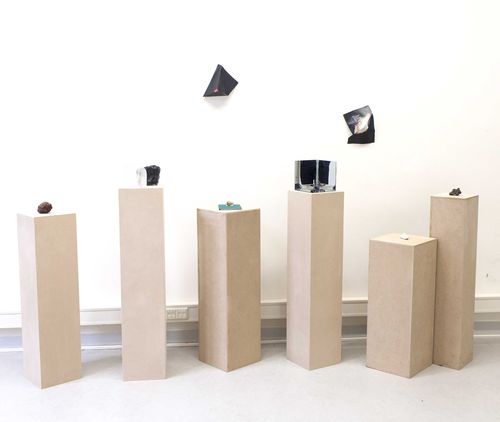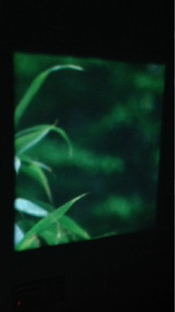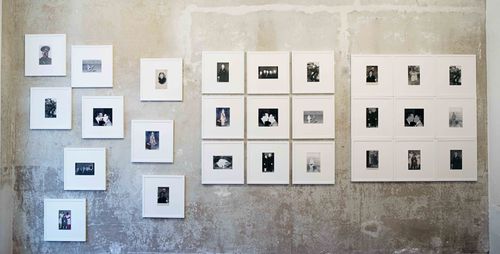Text on method final
Text on my method
Cihad incorporates photography, video and installation. His recent works have focused on the production of the space and the relationship between human and non-human. Caner creates a visual field for his personal interpretations of how humanity can look upon a changing world, and at our ever-evolving environment. He investigates these topics through digital and analog objects such as sound, video, 3D objects, appropriated material.
During my BA I was working on my identity, my environment and me. Because I believed, in order to work on other subjects you need to know yourself better. I started to investigate my identity based on my origin. In the last year of my studies I shifted from environment and my identity to space and the identity of the object. This line of interest continues during my Master study at Piet Zwart Institute. I started to read and think about space and object in a social context. Because space surrounds us. It is everywhere. Space, according to Lefebvre, consists of natural space, social space, representations or theories of space (Lefebvre, 1991). And object, I used my cultural background and Bruno Latour's ideas about object. In eastern mystical philosophy, we believe every object has a soul. We need consider this idea that while we are using objects. , “In order to develop social theory in this century we need to consider objects (non-human) on the same level as human” (Latour, 1994).
Root project. The environment is one of the parameter that shapes our life. I started to travel to my village to know people and the environment. I believe we shape the environment and at the same time the environment shapes us. I collected minerals and stones and used photography and video at the beginning of the Root project to document the relationship between my roots and me. The relationship that I want to build up was not working at the beginning. Photographs and videos were not enough to tell my experiences, stories. Then I decided to build up a space for the viewer to experience my relation with my roots. The idea of building up a space or production of space comes from Lefebvre’s book “The Production of the Space”. By using the concept of “representations of space”, I created a dark room full of soil and a photograph in a light box. the installation turned into a representation of my village where visitors could experience, a disconnected relation to my roots. In the installation the earth is colder than the ambient temperature and the light box gave off ‘heat’.
The other part of my root project is a reproduction of my origin. At the end of this project I realized that my village is no longer my roots. My father and me were born in Istanbul not in this village. As a result of this project this village is just a beginning of my origin. I took the stones and minerals that I collected from my village as a starting point and started to reproduce them in different ways such as Resin, 3d mapping and reflections in a three sided mirror. The reproduced stones looked like each other (like me and my grandfather). In appearance reproduced stones are the same but they are totally different from each other internally. And on the other hand during this project working with stones helped me to establish a starting point to understand non-human language to build up non-hierarchical relationship in this anthropocentric contemporary world.
If you live in a city you forget the relationship with the natural environment. Cities are consuming nature to make new spaces for new buildings. We have less communication with nature in this century. We forgot how we could live together. In this video work I wanted to investigate the relationship between nature and human in cities in order to deny that there are existential divisions between human and non-human nature. There is a tree in my garden and it has direct impact to my life as physical, psychological. I started to records its movements as a diary. I project this video vertically in order to point my window and there is a mirror on this video and reflect part of video to opposite site which is symbolize me.
In between, shift from my identity and environment to production of space and non-human subjects. This work is about the identity of Turkish people and our environment, which is was constructed by the state. The fictionalized Illusion is based on protests in Istanbul. I was collecting a lot of archive photographs, family albums from flea markets in Istanbul. I used this archive photographs in order to work on Turkish political history. In Turkey’s ninety years history, there have been four military coups. Every time these coups attempted to remove different people. Because, there is no room for difference, among people who live in Turkey, I made collages and divided them into three sections. It starts with colorful photographs showing how they are different from each other, it ends with a photograph of a commander’s face. The second section shows after a military coup and people are depicted with a blank inside. the state removes their identity. The third part consist of grey people. the state imposed grey upom its people. This grey color comes from colorful stairs in Istanbul. After the Gezi park protests, people painted the stairs in many color, then the municipality painted these stairs grey. I took the grey they used to show the color of state. I am going to exhibit this work in a room with a small entrance. In Turkish culture, we used to have small entrances. You needed to crouch down to get inside in order to show your respect to people as you enter. I am going to use same entrance. The wall of the installation will be grey. Because, this room is going to turn into a representation of the Turkish state.
Circle is a four channel, 49 minutes sound installation. It is last result of my research on Production of Space idea from Lefebvre and Bachelard' The Poetics of Space. It makes a circle around you in order to effect you in the dark room. It opens you to a small space where you can have a direct relationship with an artwork. It affects your sense of hearing and seeing. The produced space starts to suggest new emotions. The sound I produced refers to “designed space”, the sound refers to “lived space” and suggested emotions refer to “space that we make sense ” using the triad of Lefebvre. The dialectical relationship between these three spaces makes a product of space like a circle.
Production of space and non-human concepts became my main topic for a period. Counting is one of the results of this research. Using a quote from Bruno Latour, during my performance I count every object and human together on the same level in the space that I am in. In order to give a space to the non-human. If we want to give an equal level for non-human we need to call them by their names not just as objects. I am trying to understand the relationship between human and non-human with this performance. I ask a question, are we observers or ingredients of this society or both?
Thinking about human non-human relationship and the production of space are my main research strands. The world that we live in is consistly of space and objects. We believe in an anthropocentric world, but this is not true. We share it with space and the non-human. Human beings started to effect his environment, space and the non-human. But we forget an essential thing; we can’t live without spaces and the non-human. Through these subjects I want to tell my words in social context as an interpreter, of these issues in social context.
References
Books
Bachelard , Gaston, (1958), Poetic of space
Bourriaud, Nicolas,(2002),Relational Art
Florenksi, Pavel, Reverse Perspective, Pavel
Grayson, John, (1975), Sound Sculpture
Henry, David, ( 1995 ),Noise: a Human History of Sound and Listening, David Henry
Lane & Caryle, Angus,(2013) On Listening
Lefebvre, Henri, (1991),Production of the space
Ranciere,Jacques (2008), Le Spectateur Emancipe,
Sayin, Zeynep, (2006), Pornography of image
Sterne, Jonathan, (2012), Sound Studies
Tufeyl, Ibn, (1122), Hay Ibn Yakzan
Articles,
Benjamin, Walter, The Work of art in the Age of reproduction
Garcia, Tristam,No Matter What
Latour, Bruno, What are the missing Masses
URL's,
http://en.wikipedia.org/wiki/Ecocentrism




